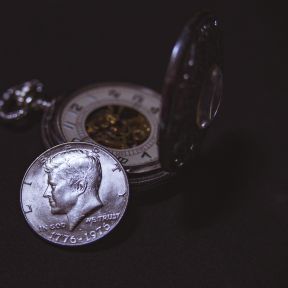How People Find Love
Finding a partner with whom to share your life can be a hopeful, difficult, invigorating, and challenging process. Seeking an appropriate mate is considered as one of the primary responsibilities of adulthood, and whether their approach is to flirt in line at a coffee shop, peruse hundreds of online profiles, or ask friends or family to arrange dates, people devote enormous amounts of thought and energy to the task. To find someone you’ll be comfortable with for the rest of your life, though, it may be necessary to go far outside your comfort zone.
For more, see Mating.
On This Page

Human attraction is driven by biological and evolutionary factors, but it can also be idiosyncratic. We may find ourselves attracted to many people, at least momentarily. Determining whether our interest in or connection with someone reflects a temporary infatuation or true love can sometimes be challenging, but research suggests that there are revealing clues in the other person’s behavior, and your own. One key early signifier that you may be serious about someone is stress: Repeatedly interacting with someone whose opinion matters deeply to you can fuel anxiety.
For more, see Mating.
According to evolutionary psychology, there are some universal human attractors: Men, for example, tend to be attracted to women with physical markers of youth and health, presumably because they seem the most fertile. But in reality, you need not be exceptionally attractive to find a mate; only attractive enough to entice your mate. The theory of assortative mating holds that people who couple up tend to have similar levels of attractiveness: We seek, with some exceptions, people like ourselves.
Research finds that people make a snap judgment about whether a potential partner is attractive in a fraction of a second. In studies in which people meet each other in a speed-dating scenario, men were more likely than women to find their potential partners attractive and were more likely to base their verdict on looks.
People certainly believe that they experience love at first sight. Long-term couples, for example, often claim years later that they fell in love at first sight, but this is likely a false memory: Research finds that the phenomenon is rarely mutual—and that it isn’t really love anyway, since it does not tend to factor in intimacy, commitment, or passion.
Human attraction plays out in fascinating ways but more often than not it involves people more alike or familiar than different; identical twins have married each other, for example, and many have married a sibling’s widow. When opposites do attract, such as partners of vastly different ages or sizes, they may thrive, although others may be judgmental of those who go against the grain.

Even people who date often and remain open to new people may not have an easy time finding long-term love. Research finds that the most successful couples meet through shared social networks or while pursuing a common interest, and couples with weaker social ties outside of each other may take longer to commit to marriage. Novelty can also be an important factor in relationship success: Someone who pushes you to consider new activities or beliefs that expand your self-concept may be a partner with whom you can have a relationship that stays fresh for decades.
Finding the right partner may begin with physical attraction, but it's personality that tends to keep couples together. People who reveal themselves to be emotionally stable and agreeable tend to be more likely to have satisfying long-term relationships. In the thrilling early days of a relationship, we tend to ignore less-favorable traits, which is why experts suggest that we not rush into long-term commitment and not delay discussing potential conflicts.
People who believe there is one perfect person out there for them—in other words, a soulmate—may struggle to find love. When one believes their eventual partner must be perfect (the “unity” mindset), they are more likely to end relationships that had a real chance of success over conflicts that may be solvable. Those who believe love is a journey and that relationships inevitably have ups and downs are much more likely to end up satisfied.
There’s a reason some people end up in the same types of failed relationships again and again: They remain drawn to the same type of partner, often because of sexual attraction. It’s not as easy to fall for someone who seems great but whom we don’t find instantly attractive. But when people are willing to spend time with someone new who may be a good match, they often discover that over time, they can indeed develop an attraction to the right person.
Friends do become lovers, but only under the right circumstances. Research finds that partners who are the most objectively dissimilar in levels of attractiveness tended to know each other longer before they became a couple. In other words, they started as friends. Other research finds that when you are attracted to a friend who may not be attracted to you, that may change over time, but typically only if that friend has always seen you as an objectively good catch because of other beneficial qualities.

Deciding to get married, or to commit to each other in a less formal but equally emotionally significant way, is the biggest step many couples will take. If one believes that one person can never truly know another person, romantic commitment will always be a gamble. But when partners feel like they are equally devoted to each other, and express that through their words and behaviors, especially those that are less conscious, they can move forward with greater confidence and hope.
For more, see Marriage.
Knowing whether your feelings for a partner are mutual is a challenge but research points to some relatively sure signs of relationship development, such as initiating communication often and responding quickly to you, as well as using more “we” than “I” talk in conversation; a lack of hesitation about spending time together; and consistent simple gestures of affection like handholding, hugging, and sitting or close by.
Love is hard to define, although many researchers believe it encompasses passion, intimacy, and commitment, the three aspects of what’s known as “consummate love.” To see where you are, and help determine if it's love, some experts suggest asking yourself questions like, How often do I think about the person?; Is it exciting to see them?; How well do they know me?; Do I feel responsible for them?; and, Am I “all-in” with them?
In studies of couples in the early stages of a relationship, those who were more socially involved—feeling as if they are friends, but also, importantly, surrounded by supportive friends and others; and those who are partner-focused—viewing their partner more positively in a variety of ways than others do—had the highest levels of satisfaction and were most likely to get married.
Individuals are more likely to commit, research suggests, when they have come to depend on a partner and when they are generally satisfied by how their partner meets their needs. People who resist commitment, on the other hand, may have multiple relationship alternatives—for example, friends with benefits—or greater non-romantic commitments that keep them from focusing on the quality of their relationship.














